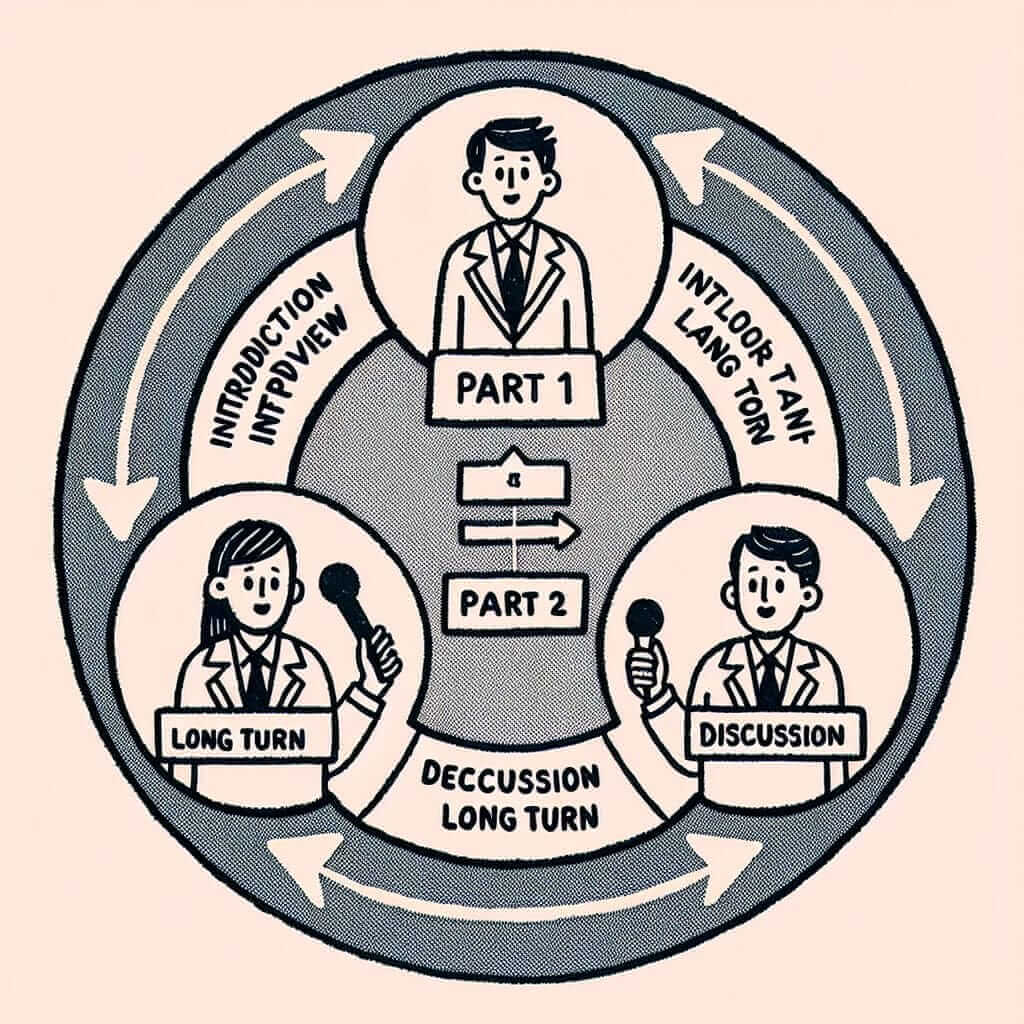As an IELTS instructor with over 20 years of experience, I’ve guided countless students to success in the IELTS Speaking test. This comprehensive guide will delve into the intricacies of the Speaking test, equipping you with the knowledge and strategies to excel.
Understanding the IELTS Speaking Test Format
The IELTS Speaking test assesses your ability to communicate effectively in English. It consists of three parts:
Part 1: Introduction and Interview (4-5 minutes)
This part involves general questions about yourself, your interests, and familiar topics.
Part 2: Individual Long Turn (3-4 minutes)
You’ll receive a cue card with a topic and prompts. You have one minute to prepare and then speak for up to two minutes.
Part 3: Two-Way Discussion (4-5 minutes)
This part involves a more in-depth discussion related to the topic in Part 2.

Key Strategies for IELTS Speaking Success
Fluency and Coherence:
- Speak naturally and spontaneously: Avoid memorized responses.
- Connect your ideas logically: Use discourse markers like “furthermore,” “however,” and “in addition.”
- Maintain a steady pace: Speak at a moderate speed, neither too fast nor too slow.
Lexical Resource:
- Use a wide range of vocabulary: Demonstrate your knowledge of synonyms and idiomatic expressions.
- Paraphrase effectively: If you can’t remember a specific word, find alternative ways to express your ideas.
- Avoid repetition: Use a variety of words and phrases to convey your message.
Grammatical Range and Accuracy:
- Use a variety of sentence structures: Incorporate complex sentences and different grammatical tenses.
- Pay attention to subject-verb agreement and tenses.
- Self-correct errors when you notice them.
Pronunciation:
- Speak clearly and articulate your words.
- Focus on intonation and stress to convey meaning.
- Record yourself speaking to identify areas for improvement.
Sample IELTS Speaking Test Questions and Responses
Part 1:
Examiner: What is your favorite time of day?
Candidate: Well, I’m definitely a morning person! I find that I’m most productive and energetic in the mornings. I love the feeling of a fresh start and the quietness before the day begins.
Part 2:
Describe a time you had to overcome a challenge.
Candidate: One challenging experience that comes to mind was when I had to give a presentation in university. Public speaking has always made me nervous, so I felt quite apprehensive about it. I started by researching my topic thoroughly and practicing my presentation in front of a mirror. Gradually, I built up my confidence and even started to enjoy the preparation process.
Part 3:
Examiner: What are some important qualities of a good leader?
Candidate: I believe that effective leaders possess a combination of strong communication skills, empathy, and decisiveness. They need to be able to articulate their vision clearly, understand and respond to the needs of their team, and make difficult decisions when necessary.
Tips to Achieve a High Score
- Practice regularly: Engage in mock speaking tests with a teacher or language partner.
- Listen to English actively: Watch movies, TV shows, and podcasts to improve your comprehension and pronunciation.
- Read extensively: Expand your vocabulary and understanding of grammar through reading.
- Seek feedback and work on your weaknesses: Ask your teacher or a native speaker to evaluate your speaking and provide constructive criticism.
Conclusion
Mastering the IELTS Speaking test requires consistent effort and a strategic approach. By understanding the test format, developing your speaking skills, and practicing regularly, you can confidently face the exam and achieve your desired score. Remember, fluency and accuracy are key, but don’t be afraid to let your personality shine through!